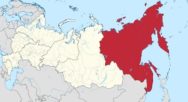
Even RUSSIA is boosting off-grid living
You can get many things for free when you live in a good off-the-grid community. You can get your drinking water for free, from converting rainwater, you can get your energy for free from converting solar power.
What you can rarely get, in the USA or most other countries, is your land for free.
A good plot of land is essential to living unplugged comfortably, it’s helpful if you can grow your own food out of it and that can be costly.
Unless you are Russian.
Yes, the Russian government have launched a new programme giving away parcels of land in their Far East region for free. The scheme was put in place as an attempt to boost settlement in the thinly populated area, but it could give birth a new wave of Russian off-gridders?
The Russian Far East is two-thirds the size of China and only holds 6 million residents, compared with the 100 million who live in the Chinese provinces across the border. Sounds like the region is so unpopulated, you could get a plot of land almost anywhere – live peacefully – and still have enough room to build everything you want. Living off-grid in a place like Russia might not sound too attractive at first, but there are actually already some off-grid communities, such as the Kovcheg Village and the Rainbow Gathering.
The number of “eco-communes,” in Russia, has grown dramatically in the last decade, and the movement back to the land is drawing professionals weary of the country’s corruption, pollution, and new consumerism. Giving them a simpler, back to basics lifestyle that we all hope and dream for.
So, could you take the plunge and live off-grid in Russia?
By Chelsea Mendez…